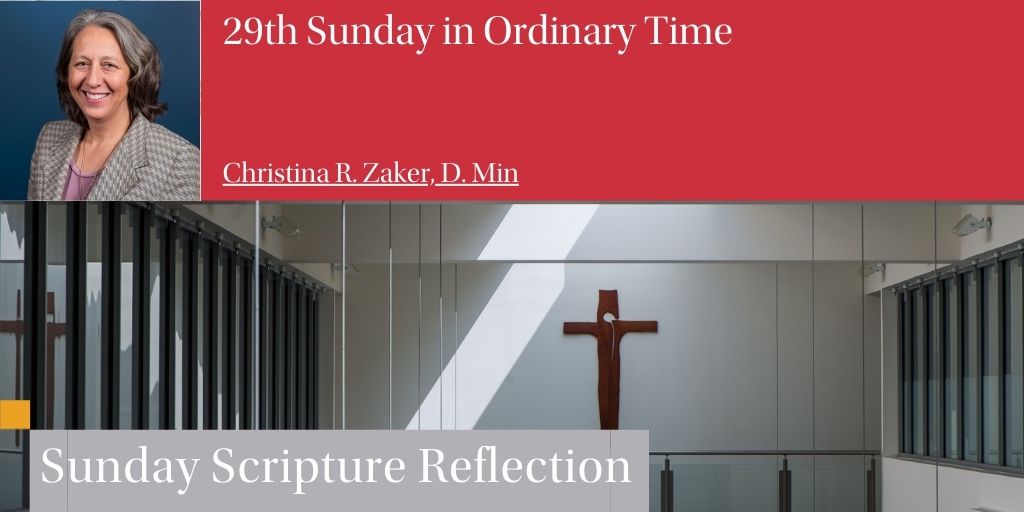
Readings:
Is 53:10-11
Ps 33:4-5, 18-19, 20, 22
Heb 4:14-16
Mk 10:35-45 or 10:42-45
The readings this week are quite foreboding and maybe even a little confusing. We start the first reading with “The Lord was pleased to crush him in infirmity.” Not the best way to begin reflecting on our relationship with God. The first reading portrays the concept of a “scape goat” where the transgressions of a community would be burned on a sacrificial animal and then it would be released into the dessert. This ritual would allow the community to begin again in their relationship with each other and their God. This image doesn’t really have easy parallels to our contextual ways of relating today. But the image in the Gospel of James and John jockeying for power does feel at least a little more familiar. The assumption that proximity to power results in us being powerful is subverted by Jesus’ answer that power needs to be given away; and if we wish to claim it without understanding it, we have missed his message entirely.
In either case, both the first reading and the Gospel offer us a confusing mix of sacrifice and servitude. These are hard readings to unpack. What makes them even harder is that we are in the month of October, which is Domestic Violence Awareness Month.
Messages like the ones mentioned above and even the one that claims whoever wishes to be greatest shall be servant of all are often distorted in the minds of both perpetrators and victims of domestic violence. People who experience such violence read these messages of our church that speak of giving our lives away or being a suffering servant as a mandate for their continued suffering. They wrongly think their oppression is a way of being tested and that forgiveness is expected of them. Domestic violence, like other types of violence, is the abuse of power in a way that controls and imitates another person. However, in domestic violence the person wielding the power is an intimate partner, one who has professed their love. The confusing mix of someone who loves also abusing can get messed up in our images of a God who sends his only son to be crucified for our sins.
The task for us as preachers, ministers and people of God is to be very clear that there is a difference between Jesus who freely gives his life and someone who has no choice in the suffering they experience. There is a difference between suffering we might endure as a consequence of our own sin and suffering that is inflicted on someone through the sinful behavior of another. When we understand that domestic violence is an abuse of power, then we can understand the argument Jesus is trying to express to James and John. I see him saying, “Recognize the power you have and place it in service of the people of God.” We cannot ask those who have less power to lead the way in service or forgiveness. It must begin with those who have the highest proximity to power; they must be the ones asked to subvert their power into service or to relinquish their power to begin the process of forgiveness.
Jesus invites each of us to consider not only how we want to be in relationship with Him, but also how we want to relate to those we love, those in our community, those in our world. Jesus’ ministry is not summed up solely in his crucifixion. His ministry showcased so many ways of being in loving relationship – he shared meals with outcasts, claimed even children had a right to proximity to him; he invited people to reconsider what they valued and how they gave of themselves to one another. His invitations to subvert our understanding of power invites us to stand with those who have been oppressed, to stand especially this month with those who have experienced domestic violence. When we help to clarify the message of love, when we help to balance the experiences of power and forgiveness, when we build relationships built on trust and hope, then we have prepared ourselves to accompany Jesus through his cross to the resurrection.
By Christina R. Zaker, D.Min.
Director of Field Education
Assistant Professor of Pastoral Ministry
